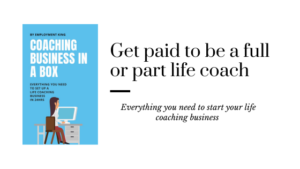How to Pass a Job Interview for Social Worker on the Fostering Team.
Social workers work with fostered children to support them through difficult times and ensure that vulnerable children are safeguarded from harm.
A social worker will provide support to the child and foster parents often working closely with multiple agencies. While working as part of a multiagency team, a social worker will at all times maintain professional relationships with service users, acting as advocates and referring agents as well as offering advice and support themselves.
Social workers on the fostering team will constantly assess the suitability of the placement and will need to use their professional judgment to make tough decisions that might not always be well-received by all service users.
All social workers follow a framework of legislation and procedures.
The job interveiw questions asked during a social worker job interview will be based on these job duties, with the expectation that the applicant can provide relevant examples that show they have the level of competence and confidence for this demanding job role.
Job Interview Questions for Supervising Social Worker: Fostering Team.
Job Interview Questions for Supervising Social Worker Fostering 1. Tell me about your experience as a social worker, including your key achievements?
All social workers will have experience as part of the social worker qualification includes work placements. The skill, in the job interview, is making the experience gained from work placement or time served in the industry relevant to the ‘fostering’ team.
Therefore it is important to understand the barriers facing you people who have been fostered. This awareness needs to be the centerpiece of the interview answer.
In addition, the applicants ‘passion’ for the job role also increases likeability which influences the employers hiring decision.
The answer can be split into 3 stages:
- Industry experience
- Relevance
- Passion
Industry experience. “For the past 20 years, I have worked as…..” Interviewees can also make reference to any qualifications or specialisms in this sector “…holding a qualification in X allowed to specialized in Y…”
Relevance. “…in X position I was responsible for (add social care/foster supervising duties and good practice that was created by yourself)
Passion. “…I applied for this role because I have always cared for (add the reason you are passionate about this role)
Job Interview Questions for Supervising Social Worker Fostering 2. Do you have any direct experience working in fostering?
In the opening interview question, applicants should have referenced their fostering experience and expertise.
When asked directly to highlight foster family supervision experience, the interview can give detailed and specific examples.
Initially, start with a generic opening line;
“While working on X project, I had a caseload of 18 fostering families….”
Before moving on to a specific example that highlights the qualities required for a social worker supering fostering families;
“…while working with one foster parent (state problem) happened, to solve this issue I (add actions and outcome).
Job Interview Questions for Supervising Social Worker Fostering 3. What has been your biggest disappointment?
The ‘disappointment’ questions vary slightly from the ‘what are your weaknesses‘ interview questions, as the disappointment doesn’t need to me about the applicant’s areas of development.
Instead, the ‘disappointment’ can be associated with your passion for the role.
“The biggest disappointment for me is the number of young people needing to be fostered…” this ‘disappointment’ can then be reframed to highlight an applicants sector knowledge and experience: “…one way to solve this issue would be to (add solution)”
Job Interview Questions for Supervising Social Worker Fostering 4. How would you manage a large casseroled?
All social workers have large caseloads. Therefore a key skill is caseload management.
Caseload management is, in reality, time management and organisational skills. Employers, don’t prefer one strategy over another, what they are keen to learn is if the interviewee is organised enough to stay on top of their workload.
In the interveiw answer, applicants can discuss:
- diary management
- to-do list
- completing easy/quick task first
- prioritization
- delegation
- cooperation
The list is endless. What will win you extra points on the interview scorecard is explaining the ‘time management matrix’ The time management matrix, in short, is a management tool that puts tasks into 1 of 4 boxes based on the level of urgency vs their level of importance.
Interviewers always score applicants high who can discuss a model and give an example of using the model in a work-related situation.
Job Interview Questions for Supervising Social Worker Fostering 5. How do you put professional boundaries in place?
As an experienced social worker, the ‘boundaries‘ question should be second nature. Still, employers ask this question as safeguarding the young people is a priority.
When answering technical interview questions don’t fall into the ‘competency’ trap and give an overriding answer. Instead breakdown the process you use to ensure the interviewer knows your level of expertise.
Explain:
- how you separate your work and professional life
- that you never give out personal contact details or accept of a young person as a friend on social media
- when you would report a young person behavior to a line manager
- the process you use to maintain confidentiality
- how you would handle a situation if a young person wanted to give you a hug, as an example
Job Interview Questions for Supervising Social Worker Fostering 6. Explain your understanding of safeguarding?
As part of the interview answer, it’s important to discuss some of the safeguarding policies, processes and procedures.
- Protecting children from abuse and maltreatment
- Preventing harm to children’s health or development
- Ensuring children grow up with the provision of safe and effective care
- Taking action to enable all children and young people to have the best outcomes.
- Protecting children from abuse and harm.
- Early help
- Child in need
Don’t just list safeguarding related topics, instead list a few and then give a real-life safeguarding example
Explain
- The situation – what gave you concern over a child’s welfare?
- Actions – what step did you take, who did you report the issue to?
- Outcome – what was the positive outcome of your intervention?
Job Interview Questions for Supervising Social Worker Fostering 7. How do you go about matching service users to foster families?
This question is the crux of the job. When answering a question about matching young people with families, give a detailed explanation, but, to make it easy for the interviewer to follow break this down into three steps
Step 1 – getting to know the young person. Do they have siblings that they need to stay with? Does where they study impact on the placement? Do their cultural beliefs impact on a suitable placement?
Step 2 – meeting the foster family. Does the young person feel comfortable? Is there any safeguarding issues? Is the family home an approved foster placement? Does the foster parent have the right skills to support the young person?
Step 3 – does the young person like the placement? Young people don’t always get a say when being put in a placement, but as part of the process, the social worker must check the young person’s thoughts about the placement.
Job Interview Questions for Supervising Social Worker Fostering 8. How do you work with clients you dislike?
A social worker will meet people they don’t like. An example of this is working with a family where an adult is abusive.
The opening answer can quantify the applicants ‘professionalism’ “I don’t view people in terms of I like or dislike them, I am there to help families and to safeguard the young person…” before giving an example of working with someone who has disclosed an act that is viewed as negative “…when working with a family who had a violent adult (give more detail)…I would meet with the adult remaining professional (give additional details)..”
It is also good to mention ‘unconscious bias‘ and how this affects personal opinions.
Job Interview Questions for Supervising Social Worker Fostering 9. You are often working in this role without supervision, how would you handle this way of working?
Self-management is a key skill of a social worker.
Interveiwers, here, are looking for an applicant’ss process to complete all social work duties without needing mico-management.
Initially explain the common duties required to be completed each week, follow this up by explaining diary management techniques. More importantly, though, is explaining yoru motivational strategy. What makes you get up in the morning? Why do you need to ensure that all tasks are completed? How you meet your deadlines?
Job Interview Questions for Supervising Social Worker Fostering 10. What do you think of recent government legislation that affects social care processes?
Government legislation can change the way social workers can support families. As new governments come into power, new legislation can emerge. From a management point of view, employers are wanting to hire social workers that can if needed, adapt their working practice to mee the new way of working, without personal opinions distracting them from their daily tasks.
When answering the question, state a new piece of government legislation (as this shows the applicant’s level of knowledge) and explain how you had to adapt business-as-usual tasks and duties to comply with the regulations.
First state the regulation and potential barrier:
“when ‘early help’ came in to play, we knew that the additional collaborative meetings would eat into the time required to be with the young people…”
Second, referenced how you adapted:
“…to make time for these additional meetings I…..”
Thirdly, give the outcome mentioning what you personally did to make the legislation work;
“…the meetings actually saved time. Instead of having to attend multiple meetings throughout the week all the professionals could discuss numerous cases in one meeting…”
Job Interview Questions for Supervising Social Worker Fostering 11. How would you handle a situation when a client fancied you?
There will be many variations to this question ‘what would you do if a young person asked to be your friend on Facebook?’
If the stated situation has previously happened, using a story to explain the station and the actions that were taken, is by far the best way to answer this tricky interview question.
What employers are looking to hear is that you follow protocol; Did you report the situation? How did you say no, while being professional, to the young person? What did you add to the case notes?
Job Interview Questions for Supervising Social Worker Fostering 12. Do you have any questions for me?
There are many types of questions that applicants can ask the interviewer, but for a social work position, the questions you ask can be job-related to help, you the applicant, decide if you want to take the offered position?
- What is the size of the average caseload?
- What is the biggest barrier in the area in terms of placing young people with foster families?
- Which agencies do you collaborate with?
- Is funding likely to increase or decrease over the next few years?
- What development opportunities do you have for a new member of staff?
- What is the average week like for a social worker in the fostering team?








